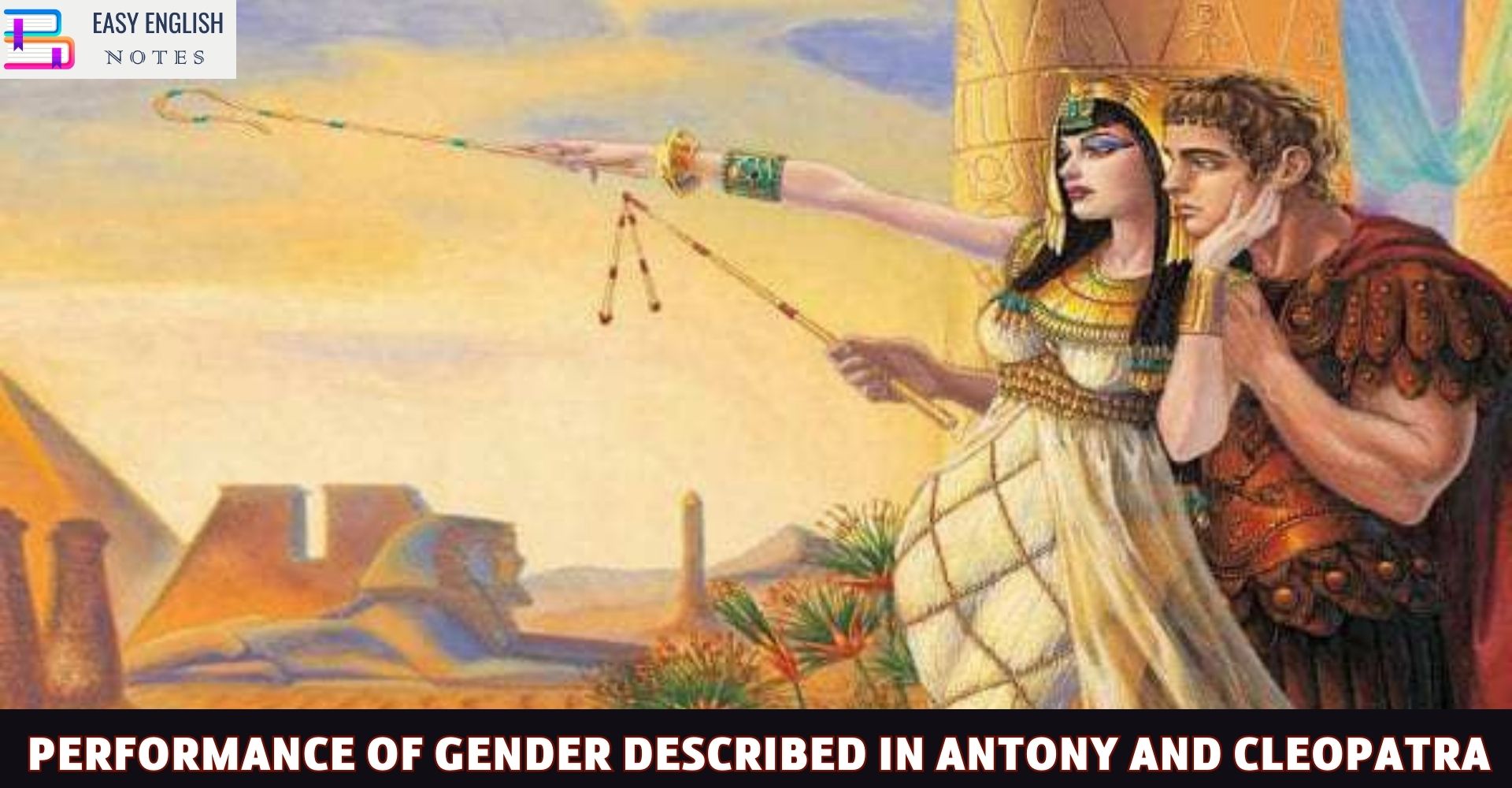Antony and Cleopatra can be seen as a play dominated by male characters, wherein Cleopatra stands out as one of the few female figures and certainly the only strong female character. Oriana Palusci, in her article “When Boys or Women Tell Their Dreams: Cleopatra and the Boy Actor,” highlights Cleopatra’s central position in the discourse of the male Roman world. Even when Cleopatra is offstage, her significance is continuously emphasized.
The portrayal of Cleopatra deviates from the conventional image of a ruler. Instead, the audience anticipates a figure who is dark, dangerous, evil, sensual, and provocative—a woman who has captured the hearts of powerful men. Shakespeare faced a challenge in creating this complex and alluring character because, during that time, all roles, including female ones, were performed by men. Phyllis Rackin points out that Cleopatra’s most vivid depiction comes through the descriptive speech delivered by Enobarbus, recounting her grand arrival on the Cynus. Such an elaborate portrayal could not be convincingly portrayed by a young boy actor. Consequently, Cleopatra’s image is evoked through vivid descriptions rather than visual representation on stage.
Rackin further notes that Shakespeare relied on his poetry and the audience’s imagination to convey Cleopatra’s greatness, acknowledging the limitations of the boy actor in embodying her character convincingly. The Romans consistently make comments that undermine Cleopatra, reflecting their perspective on foreign cultures, particularly that of the Egyptians. From the rational standpoint of the Romans, Cleopatra repeatedly defies decorum and societal norms. This disdain for her behavior results in Cleopatra embodying a political power that is continually challenged, denied, and nullified by her Roman counterparts.
To Antony’s crew, Cleopatra’s actions often appear excessive and irrational, symbolizing an extraordinary devotion that defies reason. It is no wonder that she holds a subordinate position as a queen in their eyes. However, the play also portrays Cleopatra as possessing genuine power. When faced with the threat of being humiliated and overpowered by Octavius, she takes control of her own destiny by choosing to end her life. In doing so, she refuses to be silenced by the new master and becomes the one who silences herself. This act highlights the connection between power and the performance of the female role as embodied by Cleopatra.
Also Read :
- Compare Hamlet with Macbeth, Othello and other Tragedies
- “The Pardoner’s Tale” is the finest tale of Chaucer
- Prologue to Canterbury Tales – (Short Ques & Ans)
- Confessional Poetry – Definition & meaning
In summary, Antony and Cleopatra present a male-dominated narrative where Cleopatra stands out as a strong female character. Her portrayal as a captivating and enigmatic figure relies on vivid descriptions rather than visual representation. The Romans’ comments about her undermine her authority, reflecting their biased perspective on foreign cultures. Despite being subordinated, Cleopatra exhibits real power, asserting herself in the face of threats. Her character embodies the intricate relationship between power dynamics and the performance of the female role.
Cleopatra’s significance in Antony and Cleopatra extends beyond her gender and status as a female character. She becomes a focal point of the male-dominated Roman discourse, often charged with sexual innuendos and disparaging remarks. Oriana Palusci emphasizes this centrality, stating that Cleopatra constantly occupies the center of attention, even when she is not physically present on stage.
However, the challenge of portraying Cleopatra lies in the fact that all roles, including female ones, were performed by male actors during Shakespeare’s time. Phyllis Rackin notes that Cleopatra’s grandeur is evoked through the power of Shakespeare’s poetry and the audience’s imagination. Descriptive scenes, such as Enobarbus’ vivid depiction of Cleopatra’s arrival on the Cynus, transcend the limitations of the young boy actors and require the audience to envision her greatness.
While Cleopatra’s behavior often defies Roman conventions and norms, it is precisely these transgressions that give her political power. Rackin argues that Cleopatra’s embodiment of power is continually challenged and nullified by the Roman counterparts, who view her as a subordinated queen. The Romans, driven by reason and decorum, struggle to comprehend her actions and perceive them as extravagant and irrational.
Nonetheless, Cleopatra’s agency and strength are evident in her ultimate act of defiance. When faced with the prospect of being silenced and overpowered by Octavius, she takes control of her own fate by choosing self-destruction. This decision showcases her refusal to submit to a new master and demonstrates her ability to shape her own narrative.
In exploring Cleopatra’s character, a connection emerges between power dynamics and the performance of femininity. Despite the male-dominated nature of the play and the constraints of the theatrical conventions of the time, Cleopatra transcends these limitations through her charisma, allure, and resilience. Her ability to command attention and challenge societal norms highlights the potential for female empowerment within a patriarchal society.
In conclusion, Cleopatra’s role in Antony and Cleopatra surpasses her status as the lone strong female character. She captivates the male-dominated Roman world, defying expectations and norms. Shakespeare skillfully portrays her grandeur through evocative descriptions, compensating for the limitations imposed by the constraints of the theatrical context. Cleopatra’s actions, though often undermined and misunderstood by the Romans, signify her political power and agency. Her ultimate act of self-determination underscores the complex interplay between power, gender, and the performance of femininity.
PLEASE HELP ME TO REACH 1000 SUBSCRIBER ON MY COOKING YT CHANNEL (CLICK HERE)











